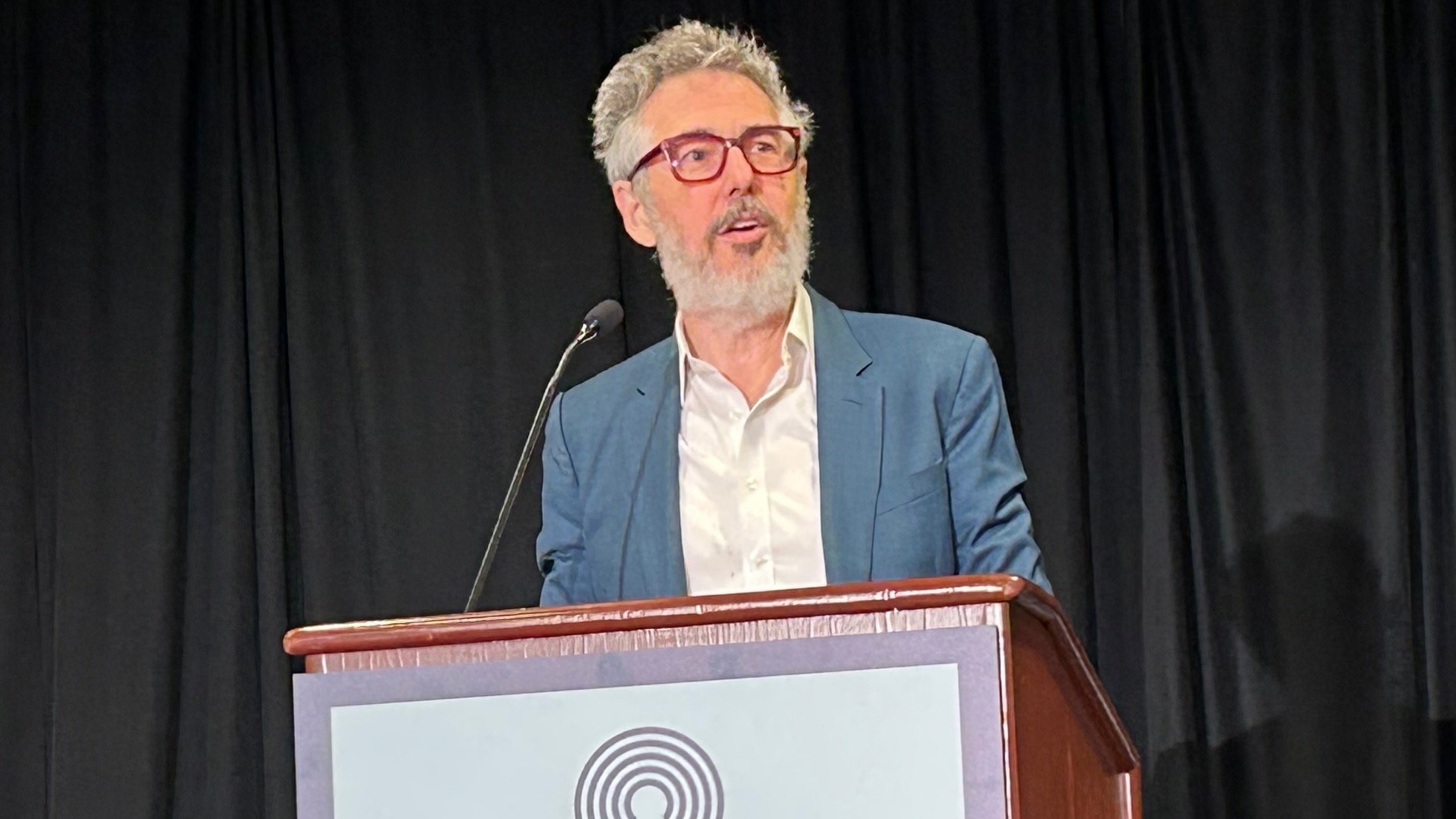Ira Glass to pubmedia: ‘The time of invention does not need to be over’

Tyler Falk / Current
Ira Glass speaks Tuesday at the Public Media Content Collective conference in Salt Lake City.
SALT LAKE CITY — As public media organizations face the new realities of a post-CPB world, This American Life host and EP Ira Glass told industry content leaders that there’s still room for innovation.
“There’s so much yet to do, there’s so much yet to invent. I still believe that,” he said Tuesday during a keynote speech at the Public Media Content Conference. “… The time of invention does not need to be over. All it takes is for us to decide that we’re going to try something new.”
He added that when it comes to federal funding cuts, “if that means stations rethinking … relationships to listeners and doing more events, and doing better local coverage and local service, I just think that would be a great thing to come out of this.”
Glass said he’s finding it to be an “enormously energizing moment to be on the radio and doing journalism,” in part because “we’re living through such a historic time when so much is shifting so quickly and this country is wrenching itself through such seismic changes. To be able to witness that and to capture it and to have the privilege to go out with microphones and people will talk to you about it … I just feel, like, what could be more interesting?”
He added that it’s especially important for journalists to reflect the complexities of the world “when everybody listening to us kind of already knows where they stand on the issues.”
“We’re living in a moment where you’re not going to convince anybody on the facts of anything anymore,” he said. “… So as reporters, what can you do? … We can just present the reality of the world in all of its complexity for our listeners. We can say these public policies, whether you support them or you don’t support them, these are their consequences. This is what they do to real people. We can insist on the reality of the world. To me, that feels like a worthwhile thing, an exciting thing to be doing, and worthy of our listeners’ time.”
Glass said it’s also important to “stand up for factual information” and “document exactly what the administration is doing, like what programs they’re quietly eliminating, what their policy changes mean.”
“This current administration — this is not editorial bias to point this out — puts out a barrage of untruths just on a different scale, with a boldness that’s different from previous presidents,” he said. “… Things are said with no evidence at all and then taken as the basis for sweeping, course-reversing policy changes.”
Glass pointed to recent NPR coverage of the Trump administration that he called “groundbreaking and … personally inspiring.” He cited reporting on the Department of Government Efficiency, such as Jenna McLaughlin’s coverage of DOGE accessing sensitive union data. He also highlighted reporting about a Justice Department official who was at the Jan. 6 attack, documents about the Trump-Putin summit in Alaska left in a hotel printer, and the administration withholding funds for fentanyl addiction programs.
WBUR in Boston “has been documenting the effects of Trump administration policies on people in their area,” Glass said, pointing to reporting on a man facing deportation to a place he’s never been.
Another NPR piece Glass singled out wasn’t on the radio. It was a visual story documenting an Israeli airstrike on a Gaza building that killed 132 members of one family.
“When a story works at its best, it’s the frame through which you see the other daily news,” he said. “I feel like this does that. This rises to that standard.”







